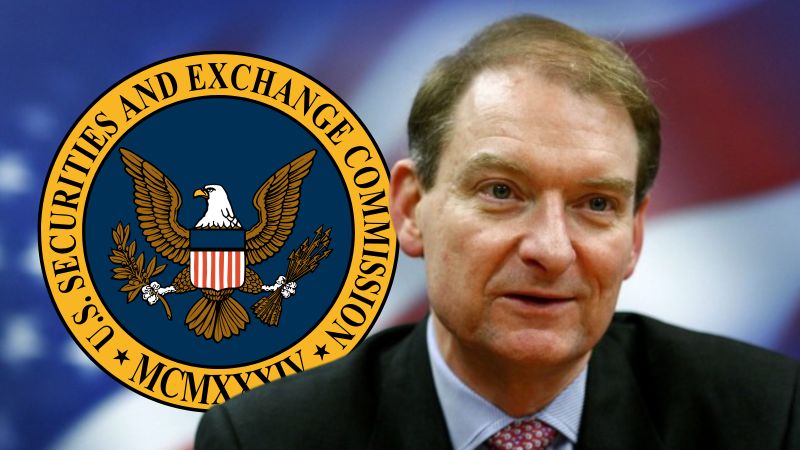On April 23, 2025, the PGI Global CEO faces SEC lawsuit, as the U.S. Securities and Exchange Commission accuses Ramil Palafox, founder of PGI Global, of masterminding a $198 million Ponzi scheme involving cryptocurrency and foreign exchange fraud. The SEC alleges Palafox deceived over 30,000 investors worldwide with promises of high returns through fictitious AI-driven trading, misusing funds for personal luxury purchases and to pay earlier investors. This high-profile case, the first major fraud action under new SEC Chair Paul Atkins, underscores heightened scrutiny in the crypto industry. This article examines why the SEC Accuses PGI Global CEO, the allegations, and its impact on investors and the crypto market.

Why PGI Global CEO Faces SEC Lawsuit
The PGI Global CEO faces SEC lawsuit due to claims of orchestrating a Ponzi scheme that defrauded investors globally. Filed on April 22, 2025, the SEC’s complaint alleges that from 2020 to 2022, Palafox raised $198 million by promoting AI-based crypto trading and forex opportunities with guaranteed 10–20% monthly returns. Instead, he allegedly diverted most funds for personal use, including luxury cars, real estate, and private jet travel, while using new investor money to pay fake returns, a classic Ponzi tactic.
The SEC claims Palafox violated securities laws by fabricating trading results and misrepresenting PGI Global’s operations. Industry discussions highlight widespread shock among investors, many of whom were unaware of the fraud until PGI Global collapsed in 2022. The lawsuit reflects Atkins’ commitment to combating crypto fraud, signaling a robust enforcement approach in the digital asset space.
Details of the Alleged Ponzi Scheme
The SEC Sues PGI Global CEO for a scheme that targeted retail investors across the U.S., Asia, and Africa. Palafox marketed PGI Global through social media and referral programs, incentivizing recruitment with bonuses. The SEC alleges the AI trading platform was nonexistent, with minimal funds used for actual trading. Of the $198 million collected, Palafox allegedly spent millions on a $3 million mansion, a Lamborghini, and other luxuries.
PGI Global relied on multi-level marketing to expand, promising passive income that lured unsuspecting investors. When the scheme failed, investors lost access to their funds, prompting regulatory action. The SEC seeks to recover losses, impose penalties, and bar Palafox from future securities offerings, aiming to restore investor trust in the crypto market.
Implications for the Crypto Industry
When the PGI Global CEO faces SEC lawsuit, it highlights the persistent threat of crypto fraud. Ponzi schemes exploit investor trust, costing billions annually. The case emphasizes the need for due diligence, as crypto scams remain a global issue. Under Atkins, the SEC is intensifying efforts to protect investors, potentially accelerating regulatory frameworks for digital assets.
The lawsuit draws attention to vulnerabilities in crypto, where promises of AI-driven profits often mask fraud. Exchanges may face stricter compliance requirements to prevent similar schemes. While the case could deter fraudsters, overly stringent regulations risk stifling legitimate blockchain innovation, a concern for DeFi and Web3 developers.
Opportunities for Investor Protection

The SEC Accuses PGI Global CEO creates a chance to enhance investor education. Retail investors can learn to identify warning signs, such as guaranteed returns or multi-level marketing models. Resources on crypto basics and risk management help investors verify trading platforms. Blockchain transparency enables tracking on-chain activity, empowering investors to detect suspicious behavior.
Engaging with reputable exchanges and seeking financial advice can safeguard investors. The case aligns with Web3 principles of decentralized trust, encouraging reliance on verified platforms over unproven schemes.
Challenges in Addressing Crypto Fraud
Despite the PGI Global CEO faces SEC lawsuit, combating crypto fraud remains complex. Global jurisdictions hinder enforcement, as Palafox operated internationally. Crypto’s pseudonymous nature can shield fraudsters, complicating investigations. Regulatory gaps in DeFi allow scams to flourish, with AI-driven frauds evading detection.
Retail investors require better education to navigate crypto complexity, as many lack the skills to assess platforms. Exchanges must balance privacy with compliance, while regulators adapt to blockchain’s rapid evolution without hampering innovation.
Looking Ahead for PGI Global CEO Faces SEC Lawsuit
As the PGI Global CEO faces SEC lawsuit, the crypto industry anticipates stronger oversight. The case may spur U.S. crypto regulations, complementing MiCA in the EU. Investors should prioritize transparency, using blockchain analytics to vet projects. With global crypto adoption growing, this lawsuit serves as a reminder to foster education and regulation, ensuring blockchain’s potential thrives securely.




